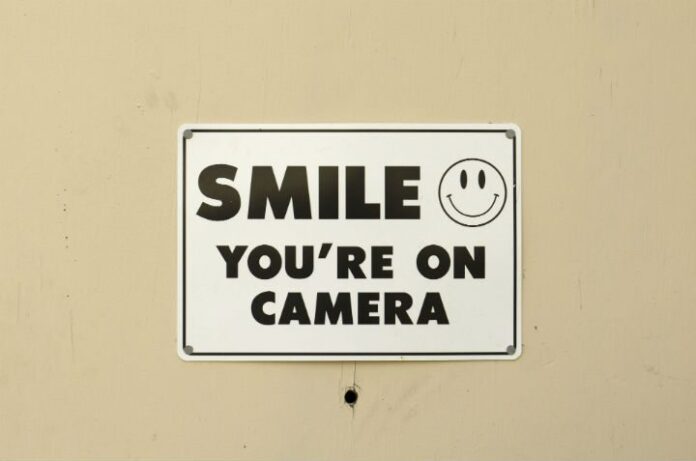Editor’s Note: Looking to bring a younger perspective to the mobile space, RCR Wireless News has tapped Jeff Hawn to provide insight into what’s on the minds of the tech-savvy youth of today.
George Orwell’s classic dystopia novel “1984” popularized the phrase “Big Brother is watching,” and provided a generation of politicians and academics a cautionary tale about the expansion of state surveillance. I for one am not frightened of Big Brother. I know that if I’m in a public building or sensitive area I will be watched by surveillance cameras. But, on the street going about my everyday life I have little to fear, unless I’m in London or Tokyo where CCTV cameras are widespread. Even then, I’m assured that the monitoring is only in public spaces and is for my own protection. After all, if I get mugged it’s nice to know that the incident can be caught on video making the villain responsible easier to find. In short, I don’t fear Big Brother and, although I’m not fond of him, I’ve come to accept him as a part of my everyday life.
“Little snitch” on the other hand is an entirely different matter. The proliferation of cellphone cameras, and wearables like Google Glass have made the phenomenon that the late, great Robin Williams called little snitch far more wide-spread. At any moment anywhere, I could be recorded by a wireless device without my consent or permission. Moreover, since these recordings are made by private individuals, I don’t enjoy the legal protections I have under state-sponsored recordings. If I was hypothetically recorded doing something illegal by a police surveillance camera that had been placed as part of a separate criminal investigation, I could argue the recording should be excluded as it violated my expectation of privacy. I probably would not win, but it’s nice to be able to try. If I’m recorded by a third party doing something illegal or unethical, do I enjoy the same protections?
Aside from the legal expectation of privacy, there is the issue of privacy itself. It’s not just other’s devices that can record me, but my own. Hackers are increasingly using webcams and cellphone cameras without their owner’s knowledge. A few years ago, Cassidy Wolf, a Miss Teen USA pageant winner, was extorted by a former classmate who hijacked her webcam and used it to record her doing personal things. Threatening to make the videos public if she did not pay him off, Wolf declined to go along with the scheme and the perpetrator is now in prison.
Nevertheless, the incident serves as a cautionary tale as does the case of Tyler Clementi, the Rutgers student who committed suicide after being outed by his roommate Dharun Ravi. Ravi had set up a webcam to record Clementi being intimate with another man in his room. Ravi then apparently tweeted the incident. He was sentenced to 10 years in prison after Clementi killed himself, but an interesting question raised by the case was whether Ravi knew he was doing something wrong. In a Washington Times article on the case, Annemarie McAvoy, an adjunct professor at Fordham Law School, believes a generation that has grown up with Twitter and the Internet “don’t feel like they’re spying. It’s just their own iPhone they’re using, their own laptop,”
McAvoy’s concern illustrates my deepest concern. I know I’m vulnerable to blatantly criminal attacks as was experienced by Wolf, but what about the person who invades my privacy without realizing they’ve done anything wrong? This is something I worry about daily. Moreover I worry about those who know they’re doing wrong but don’t care because they have no conception of the consequences of their actions. A few weeks ago I wrote an article highlighting the case of Alex Lee, also known as Alex from Target, a young man who became instantly famous due to a Web posting. Unlike Wolf and Clementi, no criminal complaint was filed because no crime occurred. But Lee, like Wolf and Clementi, had his privacy ripped away. He has apparently gone into seclusion due to threats against him and his family issued by Internet trolls.
I’m not one to call for turning back the clock. I know that cellphone cameras and the little snitches who wield them are here to stay, but I think it’s time for the wireless industry, NGOs and government agencies to help start a national conversation on what is appropriate behavior with wireless photo and video devices – similar to how the auto industry helped start a national conversation on safe driving in the 1950’s. If we don’t adapt to the reality of the new technology, privacy will diminish to the point it becomes an abstract concept to our children, and that won’t be good for anyone.
Jeff Hawn was born in 1991 and represents the “millennial generation,” the people who have spent their entire lives wired and wireless. His adult life has revolved around cellphones, the Internet, video chat and Google. Hawn has a degree in international relations from American University, and has lived and traveled extensively throughout Europe and Russia. He represents the most valuable, but most discerning, market for wireless companies: the people who have never lived without their products, but are fickle and flighty in their loyalty to one company or product. He’ll be sharing his views – and to a certain extent the views of his generation – with RCR Wireless News readers, hoping to bridge the generational divide and let the decision makers know what’s on the mind of this demographic.
Photo copyright: rfoxfoto / 123RF Stock Photo

